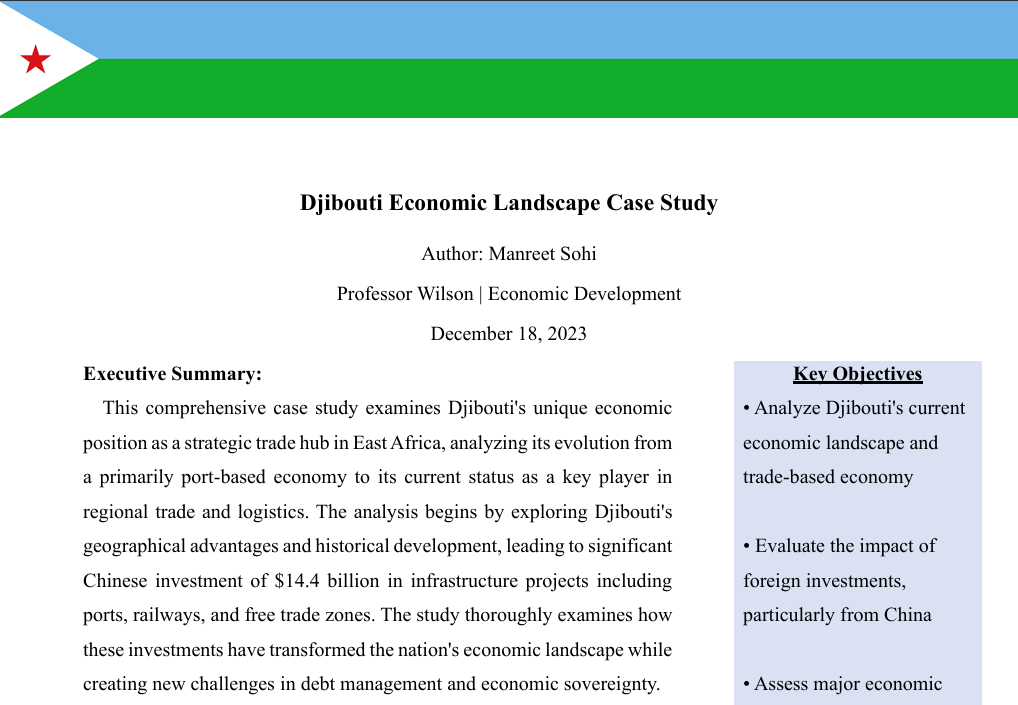
Djibouti Economic Landscape Case Study Overview
December 2023
A comprehensive economic case study analyzing Djibouti's trade-dependent economy and strategic location, proposing solutions for economic diversification and addressing key challenges of unemployment, debt, and poverty.
Case Study: Djibouti Economic Landscape Case Study Manreet Sohi.pdf
Motivation & Overview
This Quarter-Long Economic Development Case Study with Professor Wilson at UC Davis helped me discover my passion for economic development and shaped my post-graduation focus within economics. Similarly, my algorithms class revealed that computer science extends beyond coding and creating projects—it teaches fundamental problem-solving skills. Taking economic development with Professor Wilson in my senior year allowed me to combine these problem-solving abilities from computer science with my economic knowledge into one comprehensive case study. The process of researching, writing, and attending office hours to refine my work became the highlight of my university experience and remains one of my most cherished memories. Through this project, I discovered my genuine love for economic development and found what I want to do.
This case study examines Djibouti's economic landscape, focusing on how this small East African nation leverages its strategic location despite limited natural resources. The analysis explores the country's trade-based economy, its relationship with foreign investment (particularly from China), and persistent challenges including unemployment and poverty.
Skills Applied
Research & Analysis
Policy Analysis: Evaluated trade dependencies and economic vulnerabilities
Data Interpretation: Analyzed unemployment trends and debt metrics
Comparative Analysis: Assessed regional economic patterns and trade relationships
Economic Solutions
Policy Suggestions: Proposed diversification into geothermal energy and marine tourism
Investment Strategy: Recommended vertical FDI approach for job creation
Debt Management: Developed sustainability recommendations for $2.68B external debt
Impact Assessment
Infrastructure Analysis: Evaluated $14.4B Chinese investment effects
Economic Planning: Created solutions for 28.39% unemployment rate
Risk Management: Assessed trade dependency and proposed mitigation strategies
End Result: Analyzed Djibouti's heavy reliance on trade-based economy and proposed diversification strategies in geothermal energy and marine tourism, while developing solutions to address the nation's 28.39% unemployment rate, $2.68 billion external debt, and 79% poverty rate.
